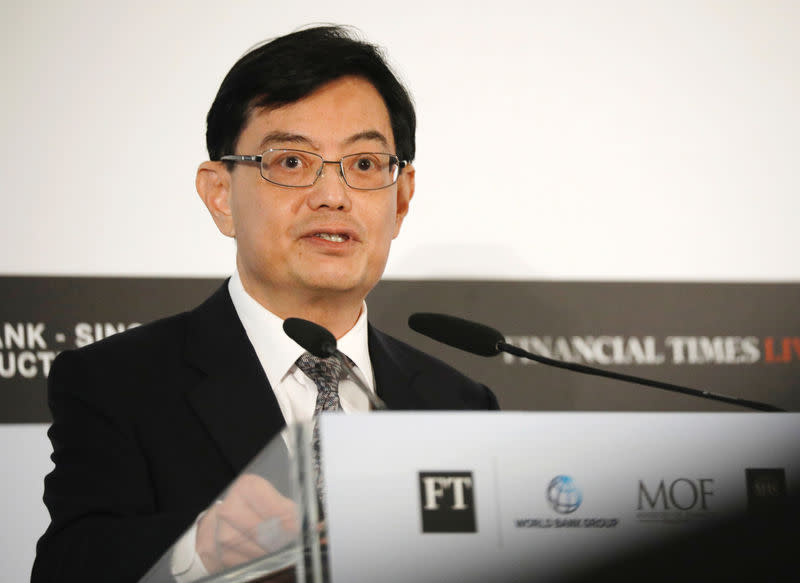COMMENT: How Heng Swee Keat can return the favour to PAP cadres

Something curious happened on Thursday morning (22 November), one day before the highly-anticipated revelation of whom the People’s Action Party’s (PAP) secretive cadres had picked as its central executive committee’s first assistant secretary-general. It would be Heng Swee Keat, Chinese-language daily Lianhe Zaobao reported, making him a near certainty to become Singapore’s fourth Prime Minister. A majority of the ruling party’s cadre members picked him over Chan Chun Sing, the man many had predicted would get the job.
The leak to the media was uncharacteristic as the cadre system has been described as a closed shop, a priesthood even, that keeps its decisions close to its heart, leaving it to the top leadership to make the announcements public. Thursday’s report, closely followed by Today’s story on the same issue citing a “senior party leader”, breached that sacred rule.
Then there is a mention in Straits Times news editor Zakir Hussain’s commentary on Saturday that the word ‘unity’ was mentioned no fewer than 12 times during the press conference helmed by the group that will lead Singapore when Prime Minister Lee Hsien Loong steps down. It would appear to be intentional, he said.
The killer point is here: “While it appears aimed at reassuring those Singaporeans who may be concerned about whether the PAP will stay united, it is also for those party members who saw distinct differences between contenders for the party posts and who might now be tempted to scale back their involvement, or even back another party, as the chosen leader may not be someone they preferred.” This is the closest that anyone has come to saying publicly that there was a rift in the selection of the party’s office bearers.
I asked former PAP Member of Parliament Inderjit Singh whether these developments were tantamount to a split in the party. His cautious, yet revealing, reply, “Although there was a general perception that Chan Chun Sing was a preferred candidate, I believe the cadres might have exercised their votes to show they preferred Heng Swee Keat. The cadres are an important source of feedback.” The leak, commentary and Singh’s comment indicate a judicious use of cadre power to get what it wanted.
The cadres’ votes show that either the political leadership is not strong enough or doesn’t want to influence the party’s decision as to who should lead the party and thus the nation. That is not necessarily setting a bad precedent.
An active cadre system, with some members prepared to leak the news before the actual announcement, shows a maturing of the political process and the extent to which it will go to make sure its candidate for first assistant secretary- general is not compromised at the last moment. It also speaks of a leadership that realises that it cannot force its way through the way Lee Kuan Yew did when he was the undisputed leader of Singapore.
The way the election went points to the beginning of a party culture that believes in acting without fear over something the cadres feel strongly about. The fact that the green shoots of a new culture are springing up, in the inner sanctum of the PAP cadre system of all places, must be a breath of fresh air when political engagement is usually frowned upon in Singapore.
Now that the cadres have given their vote of confidence, despite some hurdles, to Heng, the man has to return the favour by not just taking the nation to the next level economically and socially, but also politically. He has to start addressing Singaporeans’ desire for more room to have their voices heard. Not just heard but acted upon, too. They are not going to be happy to just listen to explanation after explanation of why certain things cannot be done their way.
For example, they will want direct answers as to why the social enterprise hawker centre mess came about and what is being done about it. Or why there is still a draconian approach in dealing with news websites that don’t toe the line. A faithful adherence to the oft-stated government declaration of a light touch policy is what many look forward to.
A source who has worked for Heng said, “I have seen him stand up to his boss, that too in writing, and disagree with a certain approach.” If this attitude prevails, then a Singapore under Heng is in for an exciting time.
P N Balji is a veteran Singaporean journalist who was formerly chief editor of Today, as well as an editor at The New Paper. He is currently a media consultant. The views expressed are his own.
Related stories
Tampines residents welcome Heng Swee Keat’s appointment as PAP’s No. 2 man
Speculation that I will be PAP assistant secretary-general ‘off the mark’: Shanmugam
5 senior PAP members step down from CEC, making way for 4G leaders
Most Singaporeans would choose Tharman as the next Prime Minister: survey



